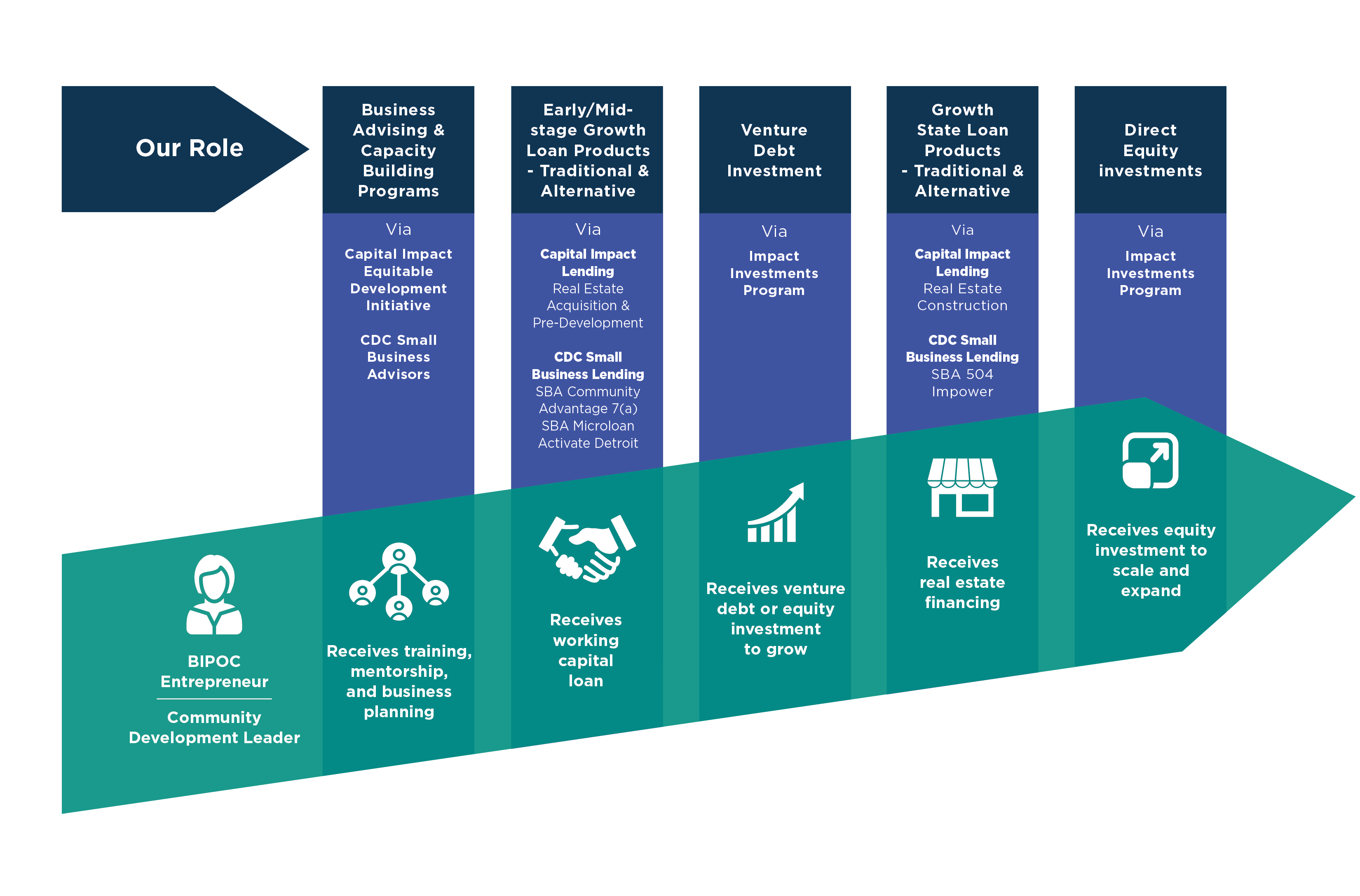
Tips: How to face the impact of the coronavirus on your small business
CDC Small Business Finance understands the profound impact of the Coronavirus on small businesses everywhere. The challenge may seem overwhelming, but we have concrete steps for small business owners to take as they face it.
Our Business Advisers have prepared their top tips for businesses impacted by COVID-19 (use the buttons at the top or bottom of the post to access the guide).
We urge you – these tips are important to address immediately and continually over the next 30 to 60+ days.
In the guide, you will find several categories we hope will be of assistance, from links to the Small Business Administration and California, Arizona and Nevada state updates, to tips on how to communicate with employees and customers.
The categories include:
- Key resources, along with tips for:
- All businesses
- Retail/customer-facing businesses
- Office/indirect customer contact businesses
And please bookmark this guide. We encourage you to check back there as often as needed as CDC Small Business Finance’s Business Advising Team will add updates with new resources and tips on a regular basis.
For current CDCSBF borrowers, stay connected on the COVID-19 Updates page on our website.
Here’s the guide:
TOP TIPS FOR BUSINESSES IMPACTED BY COVID-19
For the most recent version of this guide please click here
Key Resources
- SBA (Small Business Administration): Coronavirus (COVID-19): Small Business Guidance & Loan Resources
- SBA Disaster Assistance Customer Service Center:
- call – 1-800-659-2955 (TTY: 1-800-877-8339)
- e-mail – disastercustomerservice@sba.gov
- San Diego County: San Diego County updates
- Los Angeles: Los Angeles updates
- City of Sacramento: CityofSacramento.org/Emergency-Management/COVID19
- California: Information for employers, employees and all Californians relating to the coronavirus
- Arizona – Maricopa County: Business Guidance for Maricopa County
- Nevada – Las Vegas: Coronavirus Update
- CDC Small Business Finance Website: COVID-Update
Emergency Grants/Loans
- SBA Disaster Loan: Disaster Loan Online Application
- Facebook Business Grants: https://www.facebook.com/business/grants
- Los Angeles: Los Angeles City Small Business Emergency Micro-loan
- San Diego South County EDC: South County Business Emergency Loan Program
- City of Sacramento Emergency Loan: Covid19 Relief Fund Loan
Top Tips for All Businesses
CUSTOMER COMMUNICATION
- It’s critical to communicate openly with your customers about the status of your operations, your ability to provide service/deliver goods/perform work.
- Include the proactive protective measures you’ve implemented, and how they (as customers) will be assured when they visit your business or you visit them.
- Make sure to reference cleanliness, and the training of your employees.
- Utilize your email marketing and social media outlets, ASAP and with regular updates. As you serve your customers on social platforms, thank them for their business and how you appreciate referrals and/or positive social media posts so that others will know your business is up and running.
EMPLOYEE COMMUNICATION AND INVOLVEMENT
- Communicate daily with your employees about your immediate plans, for the first 30 days, and then for 60 days. Set up a distribution list, conference call, etc.
- Prioritize the health and wellness of co-workers and customers. Make sure they know not to come in if sick or have symptoms – the same goes for owners/management.
- Get Co-workers involved – Have ‘virtual meeting/conference call’ to get ideas for sales, efficiency, customer service. Find out who wants to work, has to work and who shouldn’t work due to various concerns (exposure, family, etc)
- Strongly encourage co-workers to notify you as soon as possible if they have symptoms, been exposed or can’t work for other reasons (kids home, transportation, etc.)
- Explain to your staff any temporary measures you put in place.
SUPPLY CHAIN COMMUNICATION
- Communicate with suppliers. Understand any supply chain limitations.
- Ensure you have sufficient inventory and find alternate suppliers if necessary.
- Negotiate extended payment terms.
- Contact the CDC and/or your bank if you are unable to meet your loan commitments.
MANAGE YOUR CASH FLOW
- Budget for the upcoming 30 days or 60 days.
- Reduce overhead, all discretionary and non-essential expenses.
- Cut back on staffing/payroll if necessary.
- Stay compliant with HR laws/regulations.
- Explain to your staff about your temporary measures.
IMPLEMENT SALES AND MARKETING STRATEGIES AND TACTICS
- Don’t stop selling and marketing.
- For large/commercial orders consider offering discounts (2-5%) for early payments.
- Promotions may encourage customers who may have been reluctant to sign contracts or to come to your business. In addition, offer 10% non-cancellation benefits or discounts, and specials on gift certificates, i.e. $20 for $30 value.
- The majority of the population is on the internet with their smartphones or computers. Utilize your email marketing and social media outlets and with regular updates and promotions.
- But don’t panic – don’t bombard your digital audience with constant emails and posts. Do social media daily, email marketing once or twice a month with meaningful information.
- Thank your customers for their business. Ask them to post on Yelp/Facebook/Instagram about how you are open for business, etc.
BEWARE OF SCAMS
- Exercise caution.
- Be leery of scams that may emerge – scammers will appear as if they are striving to assist business owners struggling with the effects of the Coronavirus.
- Beware of predatory lenders, suppliers, etc. Seek the advice of reputable Business Advisors.
TIPS FOR RETAIL/CUSTOMER-FACING BUSINESSES
- Negotiate with your Landlord for concessions (reduction, slower payment, late fee waiver, etc).
- Train/retrain coworkers to be hyper-vigilant with cleanliness, health, safety.
- Modify business hours of operation as needed.
- Put signs in windows to communicate with customers.
- Discourage sick customers (fitness centers, coffee houses, etc.). Show gratitude for their patronage, but note that safety must come first.
- Modify staffing schedule – Ask who has to work and who doesn’t.
- If necessary- temporarily close down.
- Post your business status on social media – “We’re open…Normal Hours, Reduced Hours, ” whatever applies.
- Franchisees should contact franchisor rep and request “Royalty Holiday” in writing.
- Cross-train coworkers so you’re able to function with limited crew.
- Expect to be hands-on in your business. Serving customers, cleaning, etc.
- Convert Self Serve stations to Full Serve (ex. Toppings at yogurt shops or salad bars).
TIPS FOR OFFICE/INDIRECT CUSTOMER CONTACT
- Establish work from home options where possible/necessary
- Notify customer of your work from home status
- Explain any changes to interacting with you/your company
- Specify work hours, preferred communication (email, phone, etc).
- Explain possible delays in reply/servicing, etc.
- Show empathy to clients as they may be undergoing personal and business distress.
REMINDER: Please bookmark this document as CDC Small Business Finance’s Business Advising team will be updating it regularly with valuable new resources and tips.
Click for Top Tips for Small Businesses Impacted by COVID-19In case you missed it:
CDC Small Business Finance offers several loan options for entrepreneurs and business owners. Contact our loan experts about your business and they’ll work to match you with a financing plan that best suits your needs. Reach us at loaninfo@cdcloans.com or (619) 243-8667.









